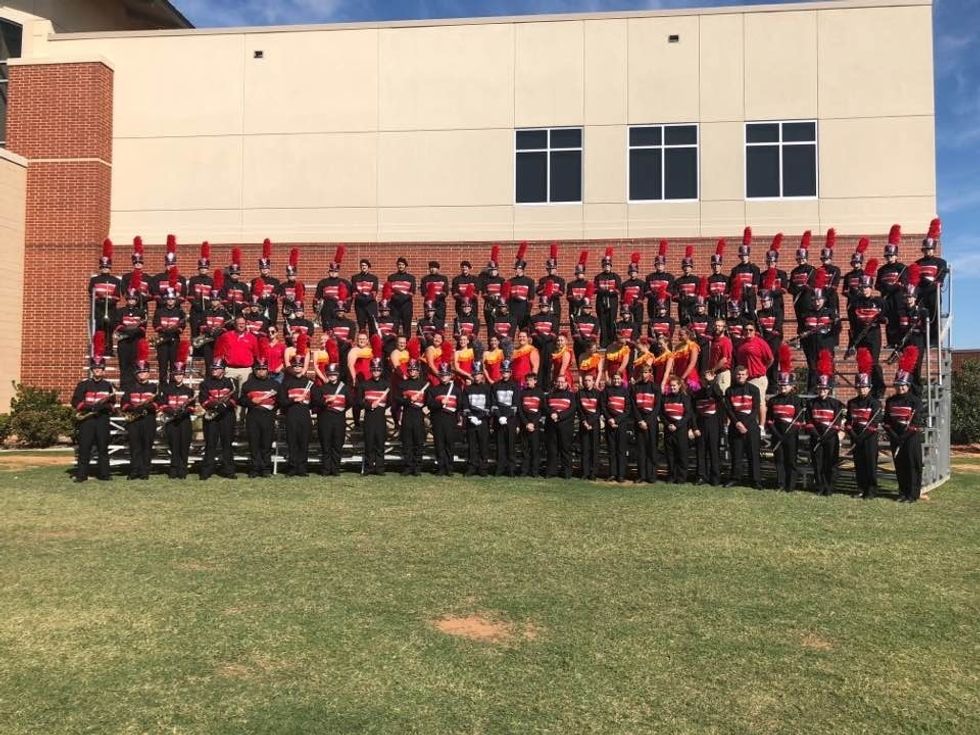3 Reasons Why Fine Arts Are Imperative To Society
Why "Fine Arts" aren't just classroom lessons, but are life lessons.
Have you ever looked around while sitting in a classroom and realized that a good portion of the top people in your class are involved in some form of a fine art? Have you ever wondered why? Being an individual involved in music and dance has opened my eyes and can be drawn into three conclusions.
Everyone must work as a team.

Claremore Band Boosters Association
There will never be a band or orchestra with one member. There is no set in the marching band show that will move in a cool way or look a certain way with only one person. There is no harmony without multiple people. There isn't one successful Broadway play or musical that one individual put on by themselves. Every aspect of the fine arts teaches teamwork and accountability whether you're a child or older adult.
Everyone learns respect.

This point is huge! Don't want to respect your teacher, instructor, coach, captain, director, etc.? It's guaranteed you will not last. Even if you think you are a professional and know everything, there will always be someone who knows more or even knows something you don't. For some people, that might be a shot to their pride. At some point, you will be the person someone, usually younger, looks up to. Your time will come but for now, learn respect!
Everyone learns work ethic; practice

Have you ever heard the term, "practice makes perfect"? As an individual in the fine arts, there is no "perfect". There is only "progress". Every repetition of a dance, music passage, or play script consistently makes progress. One of my lesson teachers once gave me a picture of this and it makes complete sense. "Your mind is like a computer. Every repetition creates a file in your mind. If you live by the philosophy of 'practice until you get it right', you'll never get it right. Say you have nine bad repetitions and one good repetition. If you perform what you just practiced nine times terribly, you have a 90 percent chance of performing that thing terribly and only a ten percent chance of getting it right. Now reverse that. If you practice that repetition 90 times great and only have 10 bad repetitions, you have a 9-in-10 chance of performing that thing incredibly." Your brain pulls one of those "files" at random and you want more good files than bad files in a performance situation. To achieve greatness, you must have a strong work ethic; and that is a life lesson everyone can use.
Teamwork, respect, and work ethic are three things that this world needs the most. Three lessons that can be learned no matter how young or old an individual is. While they can be instilled in the classroom, it's about those who take it one step further and apply it to their daily lives.


























